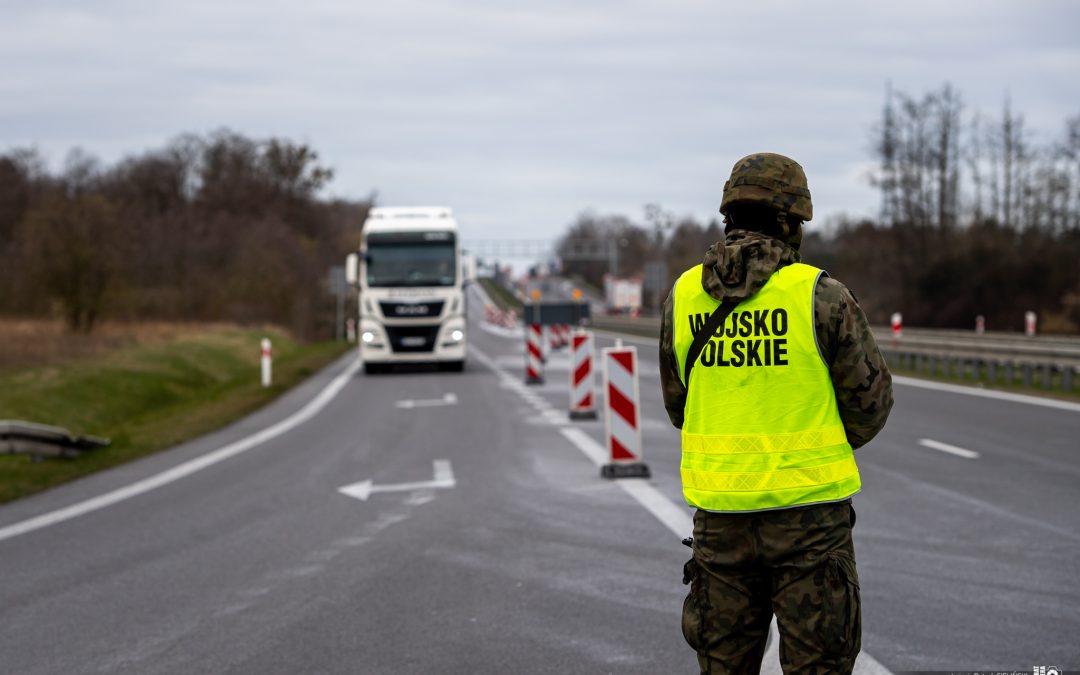Poland has launched five additional access points for trucks on the border with Ukraine, which will double the cargo traffic capacity between the two countries as Russia’s blockade of Ukrainian sea ports persists.
“We are convinced that this will have a major impact on traffic flow and will reduce queues on both sides,” said Michał Dworczyk, the Polish prime minister’s chief of staff, during a press conference on Monday at the Korczowa border crossing alongside Ukrainian infrastructure minister Oleksandr Kubrakov.
Grateful to @michaldworczyk and @AMAdamczyk for helping double the throughput of the Krakovets-Korchova checkpoint. As Russia blocked 80% of Ukrainian grain exports, improving the logistics between Ukraine and Europe is crucial. pic.twitter.com/E6oxli1KE3
— Oleksandr Kubrakov (@AlexanderKubrak) June 20, 2022
“We not only want to help our Ukrainian friends, but we also want to increase transit through Poland, as this is also a tangible benefit for Polish businesses and the Polish state,” added Dworczyk, quoted by the Polish Press Agency (PAP).
Road freight transport, which is one of the three largest sectors of the Polish economy alongside wholesale and retail trade, plays a critical role in generating half of Poland’s GDP, according to the report “Road transport in Poland 2021+” by the SpotData think tank.
Increasing the capacity of truck transport from Ukraine via continental Europe is particularly important in the context of the persisting Russian blockade of seaports, key for Ukrainian grain transport.
News from the border Ukraine/Poland. 5-10 km queue of trucks. This is how export looks like when you lose your ports. #Ukraine pic.twitter.com/U4RnnxcIKJ
— Moritz Gathmann (@moritz_gathmann) May 12, 2022
The majority of Ukrainian grain, a crucial staple for many Middle Eastern and African countries, has traditionally been transported by sea rather than road or rail. Russia’s seizure of Ukrainian ports has triggered fears of a global food shortage.
“Ukraine is a major exporter, and all the Black Sea ports have been blocked,” said Kubrakov, quoted by Polsat News. “There is a growing food crisis in the world. What we are doing now and will do is not just a question of our inter-state relations. It is a question of global food security”.
Some grain is being rerouted through Europe by rail, road and river, but experts say that the amount transported via continental Europe is only a fraction compared with sea routes.
Road transport is currently the easiest option for exporting grain from Ukraine via Poland, as rail transport is hindered by the fact that Ukraine’s rail gauges do not match those of its neighbours to the west.
Before the war, Russia and Ukraine combined exported nearly a third of the world’s wheat and barley and more than 70% of its sunflower oil. It is estimated that some 20 million tonnes of Ukrainian grain were prevented from leaving Ukraine after Russia seized the Black Sea ports, most notably in Odesa and Mykolaiv.
Main photo credit: Combat Camera Poland/Flickr (under CC BY-NC 2.0)

Alicja Ptak is deputy editor-in-chief of Notes from Poland and a multimedia journalist. She has written for Clean Energy Wire and The Times, and she hosts her own podcast, The Warsaw Wire, on Poland’s economy and energy sector. She previously worked for Reuters.




















